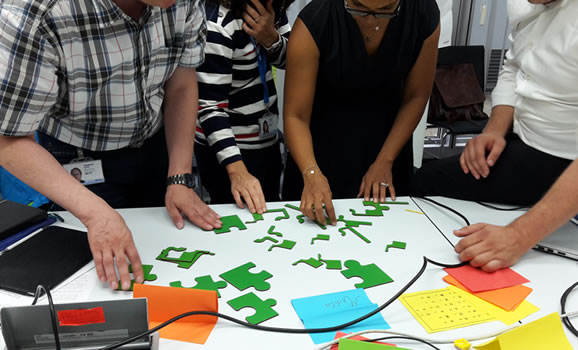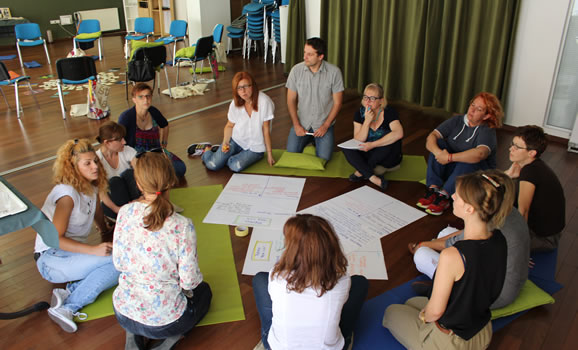“Leadership lies in the ability to transform relationships and inspire, motivate and align those wider parts of the system necessary to transform the contribution of the team. Unless the team is learning and unlearning at a rate equal to or greater than the rate at which the environment is changing around it, it cannot thrive”
(The Five Disciplines of Successful Team Practice, Peter Hawkins)
Team coaching is about developing the ability of the team to work together to achieve a common goal.
Taking a systemic approach to exploring both the internal dynamics of the team and how it relates to the broader context of the organization.
Increasing the team’s capacity to rigorously reflect on their patterns of collaboration, systemically addressing and working through critical issues in the way they think, act and produce results, together.
The structured, systemic approach that addresses multiple components influencing team performance (personal aspects, team structure & team processes) typically leads to following outcomes:
- Transparent team contract (shared values and rules; common understanding of key working principles designed to guide our decisions and everyday behaviour; accountability measures designed)
- Shared vision and team purpose, clarity in roles and responsibilities, clear boundaries
- Shared clarity in understanding organisational context, priorities, strategic aims, processes
- Commitment to communication effectiveness (Being open to say it like it is, addressing the essence of any issue, calling potential, being ready to make an outrageous request)
- Co-created solutions, increased sense of ownership
- Increased capacity to collaborate to achieve a common goal
- Increased stake-holder management effectiveness
- More sustainable action-plans, accountability and commitment to act
- Sense of purpose, inspiration, team-cohesion, empowerment
- Increased self-reflection; personal and team self-awareness

